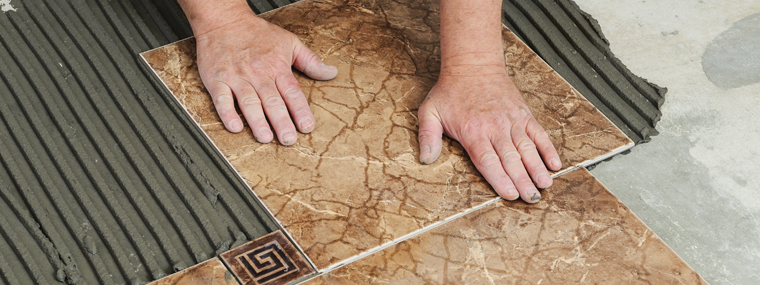
Appellate Court Clarifies Material Alteration Approval Requirements For Condominiums
By Robert L. Kaye, Esq. / Published October 2018

The Firm of Kaye Bender Rembaum provided representation to the association in this case, which prevailed in its position.
As condominiums age, boards of directors choose to update and refurbish the common elements from time to time. Quite often the updates involve changing the appearance and the materials being used, such as replacing carpeting with tile flooring. Such changes frequently become what is called a “material alteration or substantial addition” to the common elements. Whether or not the choice to undertake a significant change to the common elements of the condominium is that of the board of directors or must be put before the unit owners for a vote is always a concern that must be resolved before starting the project. This is primarily due to the provisions of Section 718.113(2)(a) of Florida Statutes, which provides, in pertinent part, the following:
…there shall be no material alteration or substantial additions to the common elements or to real property which
is association property, except in a manner provided in the declaration as originally recorded or as amended under
the procedures provided therein. If the declaration as originally recorded or as amended under the procedures provided
therein does not specify the procedure for approval of material alterations or substantial additions, 75 percent of the
total voting interests of the association must approve the alterations or additions before the material alterations or
substantial additions are commenced. . .
The Fourth District Court of Appeal was faced with that issue in the recent case of Lenzi v. Regency Tower Association, Inc., Case No. 4D17-2507, June 20, 2018. The Regency Tower Association Inc. (“Association”) had decided, by a vote of the board of directors, to alter certain common element flooring from marble to tile. Unit owner Lenzi objected to the board making that decision, claiming it was a material alteration requiring a vote of the unit owners. The Declaration of Condominium for Regency Tower expressly authorizes the board of directors to make “alterations or improvements” to the common property without requiring a vote of the unit owners. Lenzi claimed that because the Declaration did use the phrase “alteration” over “material alteration” it required a vote of the owners. When the board declined to accept Lenzi’s interpretation, Lenzi filed for arbitration with the Division of Condominium to challenge the decision of the board.
In arbitration, the arbitrator sided with the association, issuing a ruling that the language of the Declaration is sufficiently clear to encompass the limitations set forth in the statute. Lenzi was not satisfied with the decision of the arbitrator, so he appealed the decision to the Circuit Court, which likewise decided that the documents clearly provide for the authority in the board of directors, and that decision was in compliance with the statute. The Circuit Court further found that the term “alteration” includes material alterations.
In its recent decision, the Appellate Court agrees with these conclusions, ruling that words of common usage should be given their plain and ordinary meaning. The Appellate Court expressly stated that it would not arbitrarily limit the word “alteration” to exclude material alterations, finding that the word included all alterations and concluded that the board had the authority in accordance with the statute to make the change to the common element.
Whenever a condominium association is considering making changes to the common elements, the governing documents should be reviewed to make certain that this issue is sufficiently addressed and consult with counsel before making the change. It is important to also be mindful that with the changes to the statute that became effective July 1, 2018, the vote of the unit owners is required to occur “before the material alterations or substantial additions are commenced.” Unfortunately, this statutory change fails to include what might happen if the vote does not occur prior to the alterations being completed.
There is currently no similar provision in Chapter 720 F.S. regarding homeowners associations. In these situations, the provisions of the governing documents will determine the issue. If there is no limitation on the alteration of the common properties or requirement of a vote of the owners in such event, the decision will typically be that of the board. Confirmation from qualified counsel is recommended.
Robert L. Kaye, Esq.
Kaye Bender Rembaum
Kaye Bender Rembaum is a full-service commercial law firm concentrating on the representation of more than 1,000 community associations throughout Florida. With offices in Broward and Palm Beach counties, the Firm was recently presented with the 2018 Readers’ Choice Award for Legal Services by the Florida Community Association Journal, an award they’ve received annually since 2014. For more information, visit www.KBRLegal.com, call (954) 928-0680, and follow the Firm on www.facebook.com/KayeBenderRembaum.




